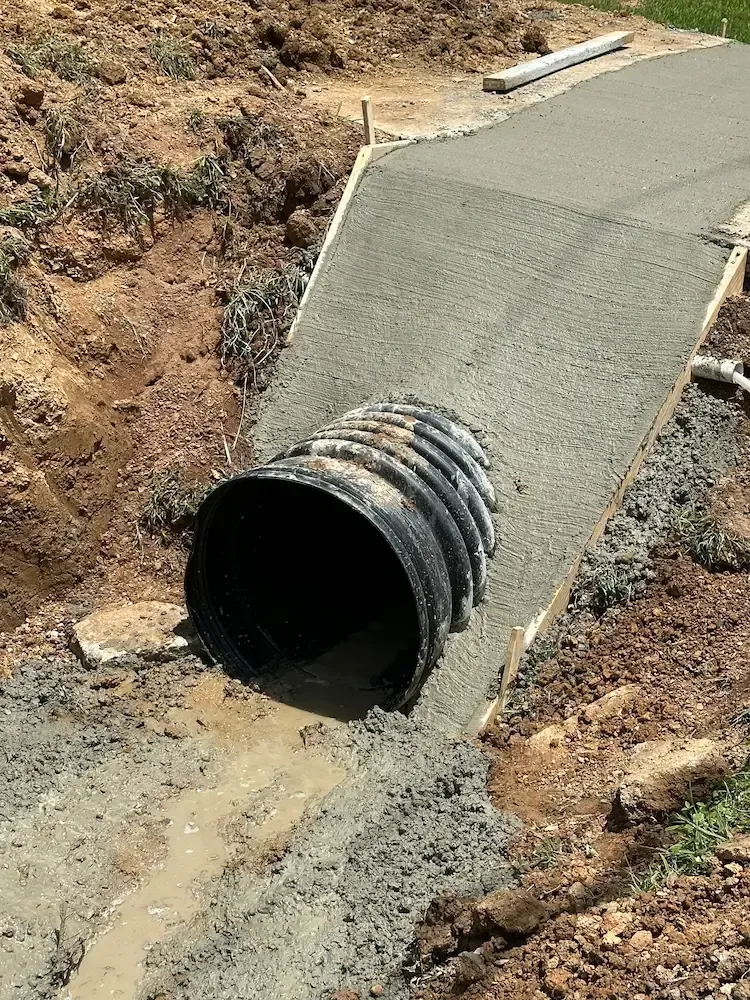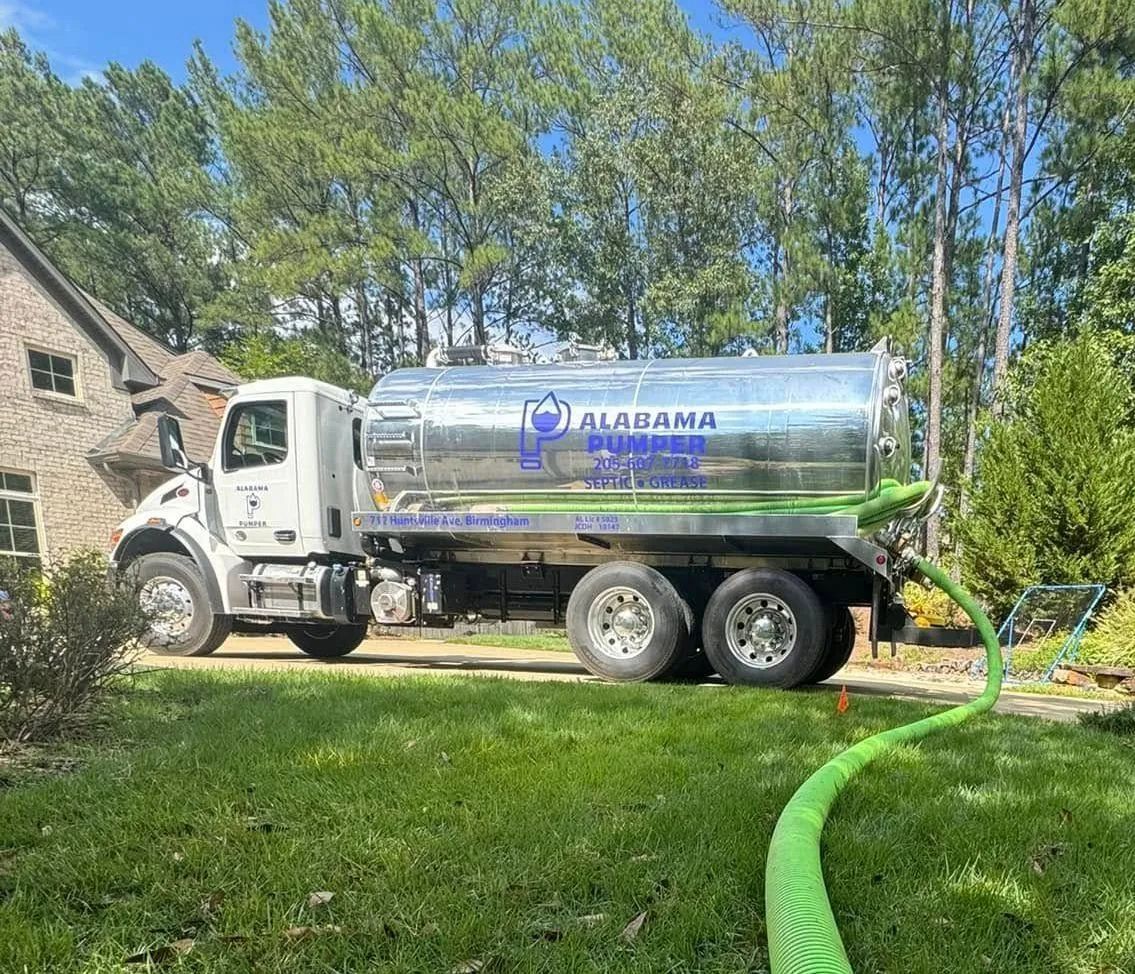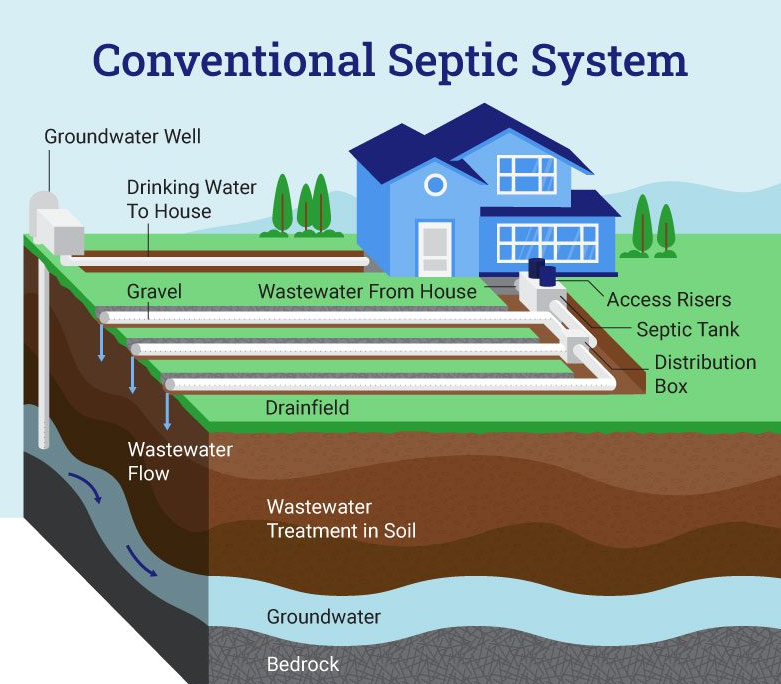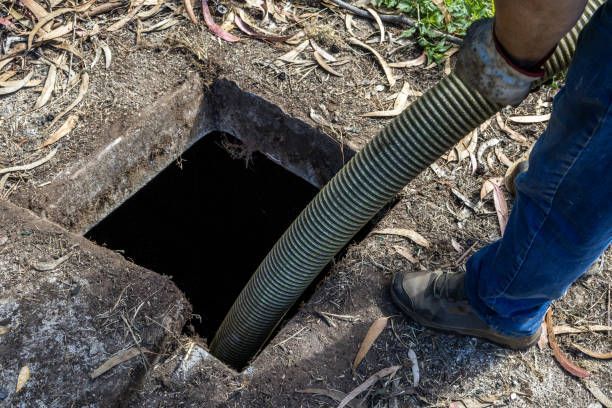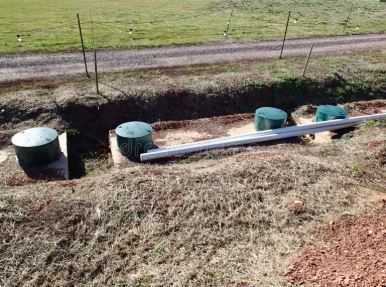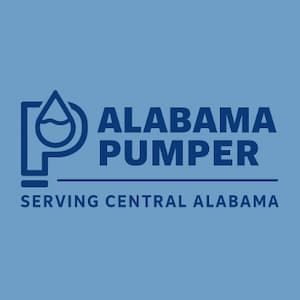Rain or Shine:
How Heavy Rain Affects Your Septic System
Heavy Rain in Birmingham & Surrounding Cities:
How to Protect Yourself from Costly Repairs
If you live anywhere in Central Alabama — from Birmingham’s rolling suburbs to the clay-heavy hills of Chelsea, or even down in the low-lying neighborhoods of Alabaster and Pelham — you’ve probably noticed that when it rains here, it really rains.
All that water doesn’t just affect your lawn and driveway — it can also put serious pressure on your septic system. While most homeowners think of septic maintenance as an “every few years” task, the truth is that weather and soil conditions play a big role in how well your system works year-round.
At
Alabama Pumper, we’ve spent over a decade helping homeowners across Central Alabama deal with the messy side of Mother Nature — keeping septic systems running right, rain or shine.
How Heavy Rain Impacts Septic Systems
Your septic system relies on the surrounding soil to naturally filter and absorb wastewater after it leaves the tank. But when the soil becomes oversaturated with rainwater, the system can’t drain properly — leading to slow toilets, standing water, or even sewage backups.
When Alabama gets hit with several inches of rain in a short time, like we often do in spring and late summer, your
drain field may become completely waterlogged. That means wastewater has nowhere to go, forcing it to back up toward your tank or into your home’s plumbing.

Why Soil Type Matters
(and Why Alabama’s Can Be Tricky)

Central Alabama’s soil types are beautiful for gardening, but challenging for septic systems.
Let’s break it down by region:
Birmingham, Hoover, and Vestavia Hills
These metro areas sit on a mix of dense red clay and shale, which retain water long after rainfall. Clay soils have tiny, tightly packed particles that prevent water from seeping down quickly. For septic systems, that means the drain field drains much slower and stays saturated longer, especially during multi-day rain events.
Gardendale, Fultondale, and Morris
These northern suburbs often feature mixed loamy-clay soils that perform a bit better but still hold moisture. Older neighborhoods here may also have aging systems installed before modern percolation standards, making regular inspections and pumping essential.
Chelsea, Pelham, and Alabaster
This region combines hilly terrain and rocky clay, which can create uneven drainage patterns. Water often collects at the base of slopes or in low-lying yards, right where many drain fields are located. That standing water can suffocate the soil and lead to premature system failure if not managed.
Helena, Montevallo, and surrounding rural areas
Lower-elevation areas often experience seasonal high water tables, especially near creeks or flood zones. After heavy rain, the groundwater itself can rise high enough to infiltrate septic tanks, causing overflows or backpressure in the system.
What Happens When the Soil Gets Saturated
When too much rain meets Alabama clay, several things can happen inside your septic system:
- Wastewater Stops Filtering Properly: The drain field loses its ability to absorb and clean water, pushing effluent back toward the tank or your home.
- Bacteria Die Off: Without oxygen-rich soil, the beneficial bacteria that break down waste can’t survive.
- Solids Build Up: With drainage slowed or stopped, solids remain in the tank longer — and if it’s not pumped soon enough, they overflow into the drain field.
- Water Contamination: In extreme cases, untreated wastewater can leach into nearby ditches, wells, or waterways — especially in areas like
Helena and Montevallo, where properties border natural creeks.

How to Protect Your Septic System Before, During, and After Heavy Rain

Before the Rain
- Check your gutters and downspouts. Make sure water is diverted
away from your septic tank and drain field.
- Grade your yard. Proper landscaping can redirect runoff and prevent standing water over your system.
- Schedule a routine inspection. Alabama Pumper can spot potential drainage issues before they become major headaches.
During the Rain
- Limit water use. Try to delay laundry, long showers, or dishwashing while your system is under stress.
- Watch for warning signs. Slow drains, bubbling toilets, or foul odors mean your system is overwhelmed.
After the Rain
- Avoid compacting the soil. Don’t drive or park heavy vehicles on your drain field — especially when it’s soft.
- Inspect for pooling water. Standing puddles over your drain field or tank lid indicate poor drainage.
Schedule a post-rain pumping. If it’s been over two years since your last service, now’s the perfect time to get ahead of potential problems.
How Alabama Pumper Can Help?
Our team has years of hands-on experience dealing with Central Alabama’s toughest septic challenges — from red clay drainage issues to flood-related backups.
We proudly serve homeowners and businesses in:
Birmingham • Hoover • Gardendale • Chelsea • Alabaster • Pelham • Helena • Montevallo • Clanton • Columbiana • Springville • Odenville • Trussville and surrounding areas.
Our Services Include:
- Septic Tank Pumping & Cleaning: Prevent overflows and extend your system’s life.
- Inspections & Diagnostics: Identify drainage and infiltration problems early.
- Hydro Jetting & Line Clearing: Restore full flow after heavy rain or clog buildup.
- Emergency Repairs: Fast, reliable help when your system is flooded or backing up.
Why Locals Trust Alabama Pumper?
We live and work right here in Central Alabama so we understand the soil, the weather, and the way septic systems behave when both collide. Our goal is simple: to keep your home safe, clean, and flowing smoothly through every season.
With honest pricing, expert technicians, and same-day service when you need it, Alabama Pumper is the go-to choice for septic system care, rain or shine.

Alabama Septic Tank FAQs: Heavy Rain, Flooding & Clay Soil
Why does my septic tank smell worse after it rains?
Heavy rain can saturate Alabama’s dense red clay soil, trapping sewer gases close to the surface instead of letting them vent properly. That’s why you may notice a “rotten egg” or sewage odor around your yard or tank lid after a storm.
Can heavy rain flood my septic system?
Yes — especially in low-lying areas like Helena, Pelham, or Alabaster, where the water table rises quickly during storms. When the ground becomes waterlogged, your tank and drain field can’t release wastewater efficiently, causing backups or surface pooling.
What should I do if my yard is soggy near my septic system?
Avoid using more water until it dries out. Soggy ground means your drain field is oversaturated, and adding more wastewater can cause backups. Once things dry up, call Alabama Pumper for an inspection — prolonged standing water can damage your system’s filter bed.
Why does water pool over my drain field after rain?
Alabama’s red and yellow clay soils have slow percolation rates — meaning they hold water longer. If water pools for more than a day or two, your drain field might be compacted, clogged, or too deep for proper drainage.
Can rainwater get into my septic tank?
It shouldn’t — but it can if your tank lids are cracked, your system isn’t properly sealed, or groundwater rises above your tank level. Once rainwater enters, it dilutes your system, slowing treatment and causing foul smells or slow drains.
How long after rain should I wait to pump my septic tank?
Wait 2–3 days after the ground dries before pumping. Pumping when the soil is saturated can cause the tank to “float” or shift — especially in high-clay areas like Hoover and Birmingham.
Why are septic systems in Alabama more affected by rain?
Our Central Alabama terrain combines clay-heavy soil, high humidity, and uneven elevation — the perfect storm for drainage issues. Because clay doesn’t drain easily, even moderate rain can leave systems backed up longer than in sandy regions.
Can rain cause my septic system to back up into my house?
Yes. When the drain field becomes saturated, wastewater has nowhere to go — so it can push back through your pipes. If your toilets gurgle or drains slow after storms, that’s a red flag to call Alabama Pumper immediately.
Is it normal for my yard to smell like sewage after rain?
A mild odor might be normal for a day, but persistent or strong smells indicate a venting or drainage issue. Alabama’s humid air traps smells longer, especially in shaded yards with poor airflow.
Can I prevent septic issues during rainy season?
Yes!
- Keep gutters and downspouts away from your drain field.
- Avoid doing laundry or long showers during heavy rain.
- Have your tank pumped every 2–4 years.
- Schedule an inspection before the spring and fall rainy seasons.
What areas in Alabama are most at risk for septic flooding?
Homes in Pelham, Helena, and Chelsea (hilly or low-lying terrain) and Birmingham/Hoover (dense clay) are most at risk. Areas with poor yard grading or old septic systems can experience faster saturation and odor issues.
When should I call a professional?
If you notice sewage smells, soggy soil, or gurgling sounds after rain — don’t wait. These are early signs of system stress. Alabama Pumper can diagnose and fix the problem before it leads to costly repairs or yard damage.
Call Alabama Pumper Today Before the Alabama Next Downpour
When heavy rain hits, it’s already too late to start worrying about your septic system. Take action today and stay ahead of the storm.
Serving Birmingham, Hoover, Gardendale, Chelsea, Alabaster, Pelham, Helena, Montevallo, and nearby Central Alabama communities.
Ready to Learn More?
Stay tuned for more Septic Related Info & Tips!


